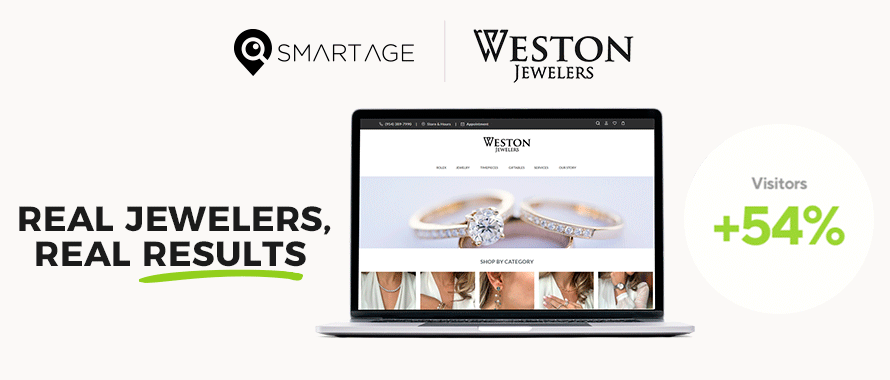How Google Decides On Your Ad Prices (And How To Lower Them)
April 14, 2019 (0 comments)

I recently ran a
keyword report for a great client. This is one of the first steps of creating a marketing plan for any local business. By looking at a variety of factors, we're able to decide the best keywords to run ads for on Google.
A "keyword" is a word or phrase that we want our business to show up for when a visitor is searching for that term on Google. But after doing some in-depth research, you'll realize that some keywords will cost you as low as $1.00 per click, while some may cost up to $20.00 per click.
Before I dive into lowering our ad costs, let's review the two main strengths of Google Ads:
- You put your store/brand in front of people who are looking specifically for the keywords you've decided on. So, rather than hoping your ads reach the right people, you KNOW that your ads are in front of the perfect potential customer.
- You only pay per click. How often have you ran an ad in a magazine, left to wonder if it actually paid off? Probably all the time. Instead, Google ONLY charges you when someone clicks on your ad.
How much will Google charge you for ads? "It depends".
Let's clear something up - your budget with Google does NOT influence your ad placement.
Each time somebody makes a search on Google, an instant ad auction happens behind the scenes. This auction compares the bidders for that keyword, and Google makes a split decision on the order they'll display the competing ads. This is called Ad Rank.
Your listing order (ad rank) is based on two things – maximum bid and Quality Score.
Quality Score
Quality Score is Google's rating of the quality and relevance of both your keywords and ads. It's based on a few things:
- Your click-through rate (how often people click on your ads).
- The relevance of your keywords.
- Landing page structure, quality, and relevance.
- The relevance of the text used in your ads.
Google keeps the exact formula a secret, but we do know that click-through rate is the most important component to your Quality Score. If a high percentage of people are clicking on your ads, Google determines that your ads are relevant to the searcher. They'll reward you with higher ad placement at lower costs.
Many business owners view Google Ads as a "Set it and forget it" solution. However, you may now notice the work that goes running a successful Ad campaign. It's not only about deciding on a bunch of keywords. You'll also want to edit your ads, test them, improve the structure of your site with better landing pages, etc.
Another recommendation is to use "long-tail keywords".
Long-Tail Keywords
Long-tail keywords play a big role in lowering your ad cost.
The more general of a search term you're bidding for, the more competing businesses you'll have bidding for those keywords as well. This means the cost will be much higher for these broad terms.
We want to target our ads to more specific search queries, called "long-tail keywords".
Broad keyword: "Jewelry"
Long-tail keyword: "best local jeweler in Long Island"
Is someone in your local area likely to search for the term "jewelry"? Or are they more likely to search for a term like "best local jeweler in my area"?
These specific, longer search queries make up the majority of Google searches, because users are searching for their specific needs. Not only will long-tail keywords have less competition (which results in lower ad cost), but they're way more specific to your sales goals.
Remember, Google Ads is not a "reach" marketing style. We're not trying to decide on the most broad search terms in an effort to reach as many people as possible. I would use social media for that. Google Ads is for the OPPOSITE purpose. The reason you run Google Ads is to target extremely specific people. By capitalizing on these long-tail keywords, you're way more likely to reach your target searcher. We can use long-tail keywords to think more like a sniper with our marketing approach.
 I recently ran a keyword report for a great client. This is one of the first steps of creating a marketing plan for any local business. By looking at a variety of factors, we're able to decide the best keywords to run ads for on Google.
A "keyword" is a word or phrase that we want our business to show up for when a visitor is searching for that term on Google. But after doing some in-depth research, you'll realize that some keywords will cost you as low as $1.00 per click, while some may cost up to $20.00 per click.
Before I dive into lowering our ad costs, let's review the two main strengths of Google Ads:
I recently ran a keyword report for a great client. This is one of the first steps of creating a marketing plan for any local business. By looking at a variety of factors, we're able to decide the best keywords to run ads for on Google.
A "keyword" is a word or phrase that we want our business to show up for when a visitor is searching for that term on Google. But after doing some in-depth research, you'll realize that some keywords will cost you as low as $1.00 per click, while some may cost up to $20.00 per click.
Before I dive into lowering our ad costs, let's review the two main strengths of Google Ads:


